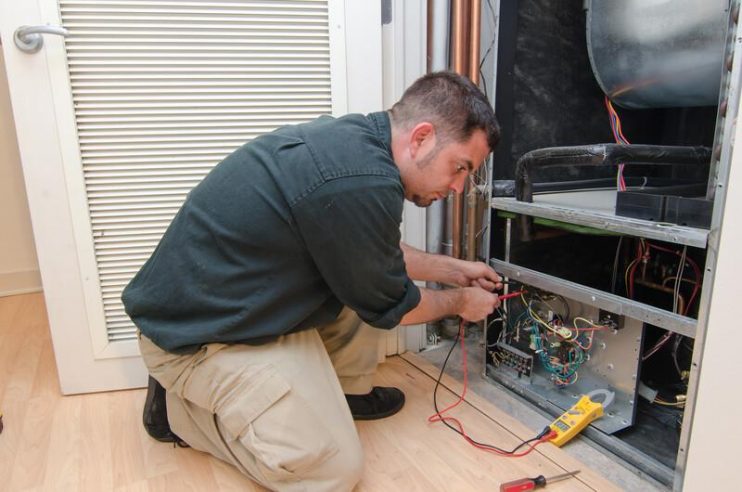Furnace or Heat Pump: Which is Better?

Whether you’re renovating, building a new home, or looking into a replacement for your existing home heating system, a new furnace isn’t your only choice. You may have heard about heat pumps, and might be wondering whether they’re a viable alternative to the good old-fashioned gas furnace. Since Ace Plumbing Heating and Air Conditioning installs both, we can speak to the pros and cons of each from direct experience.
How a Furnace Works
A furnace warms the air by burning fuel (usually natural gas, though propane and heating oil are still used in some locations), or by means of electric elements. Efficiency — expressed as the amount of fuel burned, and the amount of heat produced as a result — varies widely, with older oil burners operating in the neighborhood of 60%, and newer gas-fired furnaces well north of 90%.
How a Heat Pump Works
A heat pump isn’t directly heating anything. Instead, it works the same way as an air conditioner — and most units can do double-duty. In one mode, it’s simply moving warm air where it’s needed and exchanging it for cold air; in the other mode, it’s exchanging cold air for warm. You’ve already seen this with your air conditioner in the summertime — stand indoors and you’ll feel cool, comfortable air coming from your vents while the air outdoors is stifling. In the wintertime, on the other hand, the cooler indoor air is being vented outdoors, and the hotter air from outside is being pulled indoors (yes, there’s still hot air available in cold weather — there’s a good explanation of the phenomenon here). There’s nothing to burn, so energy efficiency is much higher, and energy costs much lower.
Pros and Cons
If you have an older furnace, a heat pump is probably sounding attractive right now. But it’s worth remembering that a new furnace is going to be much more efficient than your existing system (some new furnaces have efficiency ratings that push 98%), and that it’s going to warm your home no matter how cold it is outside.
Heat pumps, on the other hand, can have up to 300% efficiency. That is to say, for each BTU of energy expended, they’re converting 3 BTUs of energy to heat. While efficiency and overall effectiveness drops as the thermometer falls (a factor in places prone to temperature extremes), that’s less often the case in California than it would be in Wyoming or Vermont. If you currently have an electric furnace, a heat pump could be an effective replacement; with a gas furnace, it’s a more complicated picture.
Which is Better?
The answer isn’t as clear-cut as some would like, since each system has some clear advantages and disadvantages. It’s further complicated by the fact that for many homeowners, the answer is, “Both.” Heat pumps’ high efficiency and ability to pull double duty in many cases makes them attractive, but a furnace still acts as a good backup to the heat pump in the event that a polar vortex or other freak weather event brings temperatures cold enough that the heat pump isn’t as effective.
Because this isn’t something that lends itself to a one-size-fits-all answer, and because each homeowner comes to the table with different needs that will depend in part on what your home already has and the condition it’s in, we suggest contacting Ace Plumbing Heating & Air Conditioning. We can assess your existing system, the size and condition of your home, and a number of other factors that can help you make a choice you’re comfortable with.



